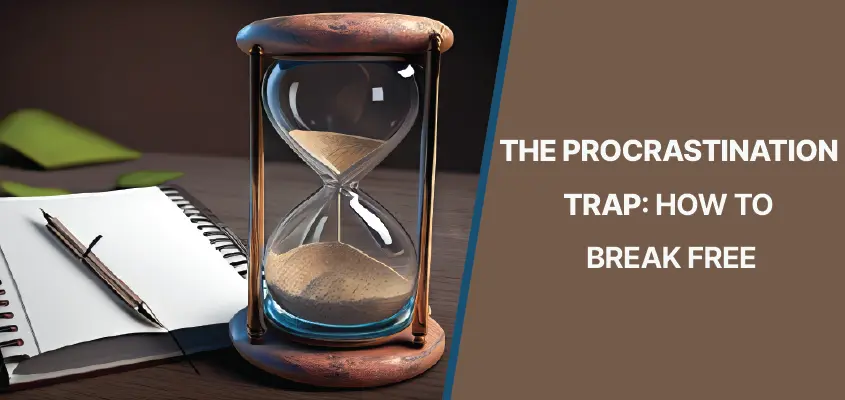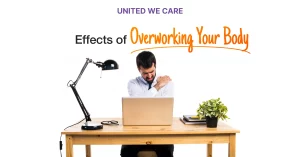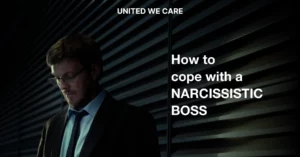Introduction
Do you often see yourself putting things off till the last moment? Do you easily get distracted from the tasks of the day? I used to be that person, too. So, I understand you and your procrastination. My friend used to say that the fact that I procrastinate and still get the work done is the reason I procrastinate, and I couldn’t agree more. But, very soon, I realized that instead of working under pressure, if I actually worked on time without delay, I would be able to lead a very peaceful life. Through this article, let me share what I did to overcome my procrastinating behavior. I hope that helps you, too!
“Procrastination is the thief of time; collar him.” -Charles Dickens [1]
What is Procrastination?
Whenever I hear the word ‘Procrastination,’ I am reminded of Nicholas Cage’s character in the movie ‘Adaptation- a guy procrastinating writing a screenplay. When you delay or postpone doing a task, that is what is called ‘Procrastination.’ Basically, you know that it will lead to you feeling uncomfortable, stressed, and even anxious, but you still continue to postpone the work till the end [2].
Did you know that procrastination can impact you physically and mentally as well? When you procrastinate, your studies, work, and personal relationships can also suffer. You might feel stressed, and symptoms of anxiety and depression surface, along with sleep-related issues and feeling tired most of the time [3] [4] [5].
If you want to find a solution to this procrastination, you need to, first of all, learn how to manage your time and limit any distractions.
Why Do People Procrastinate?
Over the years, I have had a lot of friends, colleagues, and clients who have procrastinated, specifically on important tasks. Here are some of the reasons [6]:
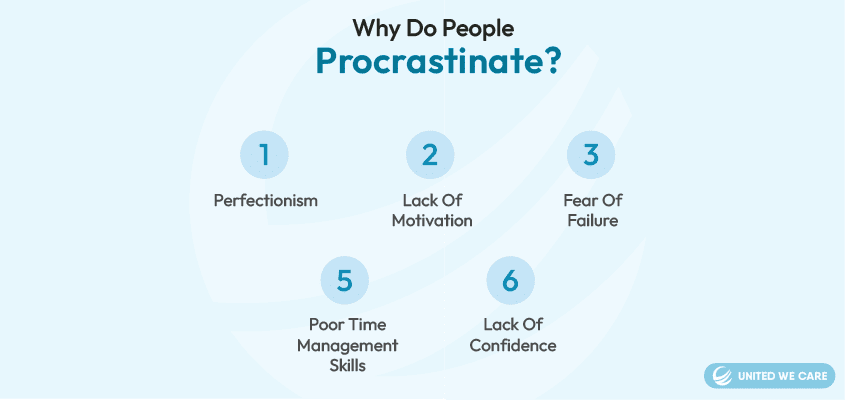
- Perfectionism: You are probably setting too high a standard for yourself. So when you feel that you may somehow not be able to reach up to those expectations, you start fearing the outcome. Hence, you start procrastinating.
- Lack of Motivation: It’s also possible that you don’t feel excited about the work you’re doing. Personally, when I feel excited or interested, I will put my heart and soul into the work I’m doing. If not, then I was someone who would dilly-dally till it was not something urgent. So, maybe like me, you need to understand the value of completing it in time.
- Fear of Failure: If you are someone who is afraid of failing, then also you could be procrastinating. You could be doing so probably because you don’t want negative feedback or disappointment. But is not doing the work going to solve that? That is the main question.
- Poor Time Management Skills: How many of us are absolutely bang on when it comes to managing our time? Very few. So, if you are someone who doesn’t know how to manage time or which task should be prioritized first, you will end up focusing on the wrong tasks rather than the urgent ones.
- Lack of Confidence: Let’s say there is a project that you are given, and you don’t have much knowledge or expertise in it. Do you think you will be able to complete it on time? No, right? So, if you need more confidence in completing a task, you might take time in addressing it.
What are the Effects of Procrastination?
As I already mentioned, procrastination can impact your mental, physical, and social well-being. Let’s see how [7]:
- You can feel stressed and anxious about meeting deadlines.
- Because of the last-minute rush, you end up submitting low-quality work.
- You are unable to meet the deadlines.
- You may let people around you down, impacting your relationship with them.
- You may feel guilty or shameful for not meeting the expectations.
- You may feel more tired because something that might take an hour, you end up taking ten hours for the same task.
How To Overcome Procrastination?
I understand that procrastination may be difficult, and you might even feel helpless or out of control. But, there are a few strategies that really helped me get out of this procrastination trap and break the cycle [8]:
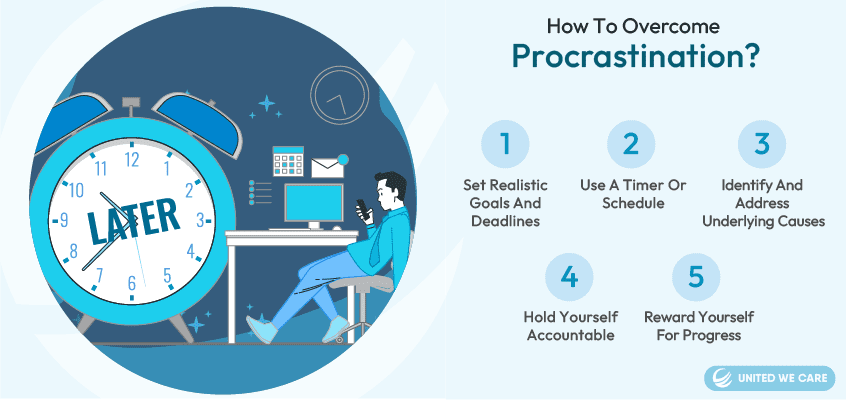
- Set Realistic Goals and Deadlines: When you receive a task, give yourself time to evaluate it and set realistic expectations and deadlines. That way, you can break down the work into smaller tasks that might be more manageable rather than looking at the whole thing in one go. So, as you take one step after another, you can set a deadline for each step. That way, you can feel motivated and have a structure to work around.
- Use a Timer or Schedule: Setting a timer for me to complete the work has always worked for me. I remember while I was in my post-graduation, my friends and I used to give each other 30 minutes to an hour to complete a certain topic, and after that, we had to discuss it. This scheduled or focused work is also called the Pomodoro Technique [9]. It helps you remain on track, and in fact, it really helps you increase your productivity.
- Identify and Address Underlying Causes: If you already have anxiety or fear of failure, by taking up a task without addressing these issues, you are actually setting yourself up for procrastination. So, give yourself time and first address stress, anxiety, depression, burnout, etc., kind of concerns first so that procrastination doesn’t add to it. You can even take professional help in this case. United We Care is a platform that can help you.
- Hold Yourself Accountable: As I mentioned, my friends and I used the Pomodoro Technique. It helped us remain accountable for our actions. So, recently I even started posting my tasks and progress on social media, specifically if they are about my personal life. This acts as external motivation because I’m sure even you wouldn’t want people to think you are not capable, right?
- Reward Yourself for Progress: After completing the tasks of the day, I make sure to give myself a little treat. It can be a favorite treat, taking a break, or doing things I like. Usually, I would sit down to watch a movie after a well-productive day.
Conclusion
Everyone, at some point, has dilly-dallied in completing a task. Procrastination is not a crime. However, it can lead to some drastic consequences, at work and in personal life. So, make sure to follow the tasks one by one rather than looking at them as a whole. See what part of the tasks you like the most, start with that, and when you complete some part of it, celebrate your victories. Most importantly, try setting realistic timelines, and you will be all sorted. We all can fall victim to the procrastination trap, but by reducing distractions, we can take care of mental, emotional, and social well-being effectively.
If you are experiencing procrastination, consult expert counselors and explore content at United We Care! At United We Care, a team of professionals and mental health experts will guide you with the best methods for well-being.
References
[1]“A quote from David Copperfield.” https://www.goodreads.com/quotes/15368-procrastination-is-the-thief-of-time-collar-him
[2] P. Steel, “The nature of procrastination: A meta-analytic and theoretical review of quintessential self-regulatory failure.,” Psychological Bulletin, vol. 133, no. 1, pp. 65–94, Jan. 2007, doi: 10.1037/0033-2909.133.1.65.
[3] K. S. Froelich and J. L. Kottke, “Measuring Individual Beliefs about Organizational Ethics,” Educational and Psychological Measurement, vol. 51, no. 2, pp. 377–383, Jun. 1991, doi: 10.1177/0013164491512011.
[4] F. Sirois and T. Pychyl, “Procrastination and the Priority of Short-Term Mood Regulation: Consequences for Future Self,” Social and Personality Psychology Compass, vol. 7, no. 2, pp. 115–127, Feb. 2013, doi: 10.1111/spc3.12011.
[5] “Table of Contents,” European Journal of Personality, vol. 30, no. 3, pp. 213–213, May 2016, doi: 10.1002/per.2019.
[6] R. M. Klassen, L. L. Krawchuk, and S. Rajani, “Academic procrastination of undergraduates: Low self-efficacy to self-regulate predicts higher levels of procrastination,” Contemporary Educational Psychology, vol. 33, no. 4, pp. 915–931, Oct. 2008, doi: 10.1016/j.cedpsych.2007.07.001.
[7] G. Schraw, T. Wadkins, and L. Olafson, “Doing the things we do: A grounded theory of academic procrastination.,” Journal of Educational Psychology, vol. 99, no. 1, pp. 12–25, Feb. 2007, doi: 10.1037/0022-0663.99.1.12.
[8] D. M. Tice and R. F. Baumeister, “Longitudinal Study of Procrastination, Performance, Stress, and Health: The Costs and Benefits of Dawdling,” Psychological Science, vol. 8, no. 6, pp. 454–458, Nov. 1997, doi 10.1111/j.1467-9280.1997.tb00460.x.
[9] “The Pomodoro Technique — Why It Works & How To Do It,” Todoist. https://todoist.com/productivity-methods/pomodoro-technique

